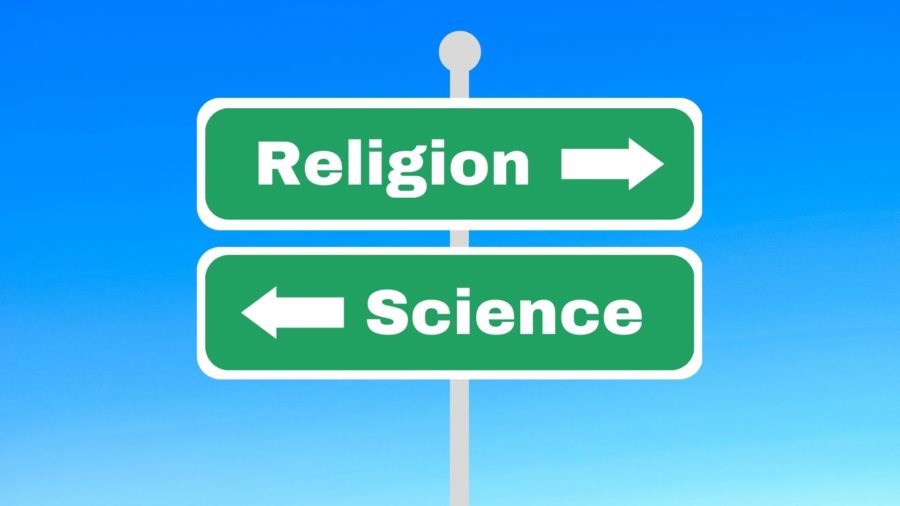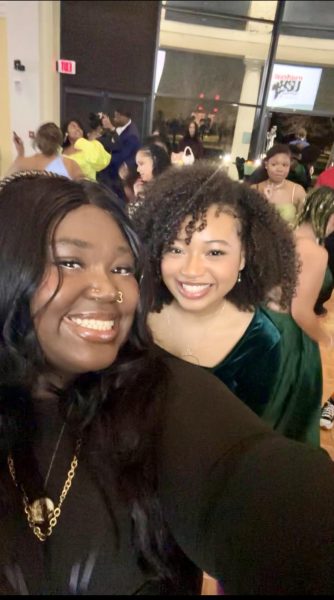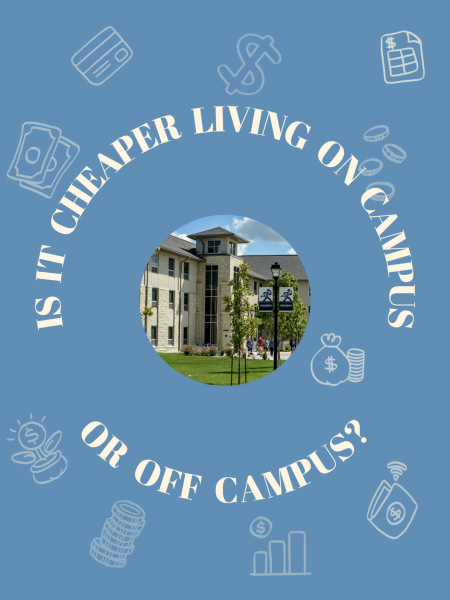The compatibility of religion and science
Religion and Science, though opposites, are not necessarily incompatible. Science is based on natural observation, while religion provides answers to personal guidance.
When asking professors from Washburn University about the compatibility of science and religion, there is a unanimous consensus that the two aren’t necessarily incompatible. Kellis Bayless, senior lecturer of biology, immediately presented the focus of what science is and how it is not in competition with religion. Instead, the two address entirely separate spheres of understanding.
“Generally you wouldn’t use science to answer questions about good and evil and morality,” said Bayless. “When it comes to the afterlife or my soul, you’re going to have to address that with some other issue with a concept like religion.”
Bayless’ Ph.D in philosophy is focused on plant ecology and plant physiology.
Science is based on natural observation where humans explain observed phenomena based on logic and rationality. For example, if a person wants to know what diet is healthiest for them, they may not have an efficient way of using their religion to teach you. Whereas a scientist, or a dietician, could tell you about complex carbohydrates and unsaturated fats that may be better for you.
Tracy Wagner, associate professor of biology, offered quite a similar view to Bayless. Wagner completely disagrees that there is an incompatibility between the two. Much like Bayless, she states that science simply does not answer to our personal guidance.
“Science may tell us how things can happen in the natural world as we understand them,” said Wagner. “Religion can tell us about maybe why or the benefit of ethos and morality in our society.”
Wagner’s Ph.D in philosophy is focused in human physiology. Wagner was raised methodist and follows the teachings of Christianity.
The idea that science and religion are not compatible rely on many factors, especially as there are a significant number of religions. The argument made by Bayless and Wagner is if there is a true incompatibility, there would be a complete absence of nonsecular scientists.
“I wouldn’t say that science tries to deny the existence of religious concepts like God, I would say that scientists refuse to address it,” said Bayless. “When I’m trying to figure out what’s going on with plant photosynthesis I’m not going to appeal to a supernatural explanation.”
Wagner, offers an extension of this idea in how science helps us understand life in detail. In accordance with many of the more known religions, their texts never explain how human anatomy works or how plants convert sunlight into energy.
According to Bayless and Wagner, religious texts are not scientific documents and vice versa. There are, of course, a minority of individuals who strictly believe in science and a minority of individuals who strictly believe in religion and would disagree. Bayless does present that if you use science and religion to answer the same question, then a compatibility can form. This is what leads to the major question of compatibility between science and religion.
“What’s the origin of life? From a science perspective we can’t really address that,” said Bayless. “It would be a belief just like any other religion, since we never observed life coming from non life.”
The point Bayless makes here is in conjunction with the definition of science. We need to observe and study, in real time, an event happening. No matter how much we reverse engineer an explanation, without conclusive evidence, there is no science. This means whether or not one believes in creationism or the big bang theory, neither can be proven by anyone. Solely believing in the science of the big bang theory is fundamentally the same as being religious.
Bayless’ explanation of the controversial topic of life and its creation makes science and religion one in the same when addressing specific questions. Wagner’s view is intertwined with an incidental agreement between science and religion. In an article she read, physicists explore the big bang theory and how the universe may be structured.
“Time might be an artificial construction in space. Distance might be an artificial construct we experience in this world,” said Wagner. “All I could think of are verses in the bible where it says 1000 years is the same as a blink of an eye.”
The answers may have been there all along, and we are simply learning about them. This subsequently addresses the topic of the lifespan of Earth. According to Wagner, we have to be careful about taking anything too literally. The bible has many lessons within it and many metaphors, such as Matthew 18:8: “And if your right hand causes you to stumble, cut it off and throw it away,” (New International Version).
This, of course, was translated in the metaphorical sense that no one is participating in self-mutilation when they perceive themselves to commit sin. This lesson he teaches here also conflicts with the doctrine of treating your body as a temple. There is always debate between science and religion: However, at closer examination, there may be more signs of symbiosis than incompatibility.
Edited by Simran Shrestha and Aja Carter
Your donation will support the student journalists of Washburn University. Your contribution will allow us to purchase equipment and cover our annual website hosting costs.













